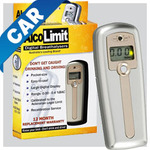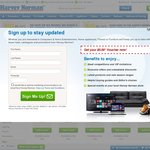Cool little breathalyser at $59
Wonder how affective it is
Specifications:
Accuracy - 2 decimal places
Range - 0.00-0.40 %BAC
Calibration - Single point
Model Number- ALCO0001
Usage:
After social drinks
Weddings and engagements
P-plate drivers
Testing residual alcohol the morning after drinking
Alcolimit Breathalysers are recommended as a screening device only. The reading you receive is not legally binding in a court of law. Alcolimit Breathalysers are to be used only as a guide. The only true indication of your %BAC is a blood test. This product must not be used as a tool for determining whether a person is able to operate a vehicle or machinery. The intake of any alcohol will impair reflexes and judgment to operate motor vehicles and machinery.

